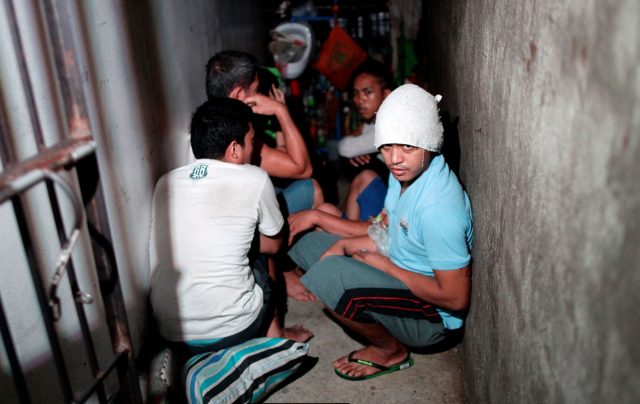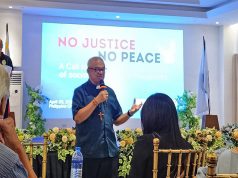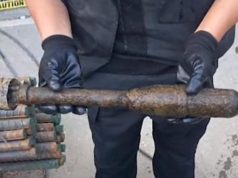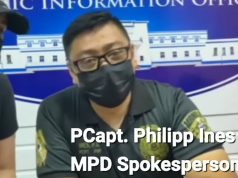The Commission on Human Rights and other concerned Filipinos questioned the decision of the Office of the Ombudsman for dismissing the charges against police officers who were allegedly behind Tondo’s “secret jail” controversy.
In the resolution approved in December 2020, the Ombudsman cleared four police officers who were allegedly involved in the illegal detention of 12 people, including three women, in a dingy secret cell the CHR discovered in April 2017.
Lieutenant Colonel Roberto Domingo, Master sergeant Jonathan Ubarre, Corporal Dylan Verdan and Patrolman Berly Apolonio, who were assigned at the Manila Police District Station 1 in Tondo, Manila were cleared of the following charges: arbitrary detention, grave threats, grave coercion, extortion, maltreatment of prisoners and grave misconduct.
The Ombudsman cited that there was not enough proof of bad faith on why the police officers kept the detainees under such horrific conditions.
“There is no showing that respondents did so in bad faith. Since the burden of proof lies with the CHR, it was incumbent upon said office to prove that there was another available confinement area which is better than the one where said detainees were locked up, but that respondents intentionally and maliciously refused to accord them such,” read the resolution.
Three years after CHR’s discovery made headlines, this prison behind a police station’s bookshelf resurfaced on social media last year after it was featured in the award-winning documentary “Aswang.”
The full-length movie, which was directed by Filipino filmmaker Alyx Ayn Arumpac, recounts the first two years of the current administration’s bloody drug war which killed thousands of Filipinos, particularly women and children from the urban poor.
READ: The story behind Tondo jail’s ‘secret cell’ as told by photojournalist Ezra Acayan, ‘Aswang’ movie
It was initially released in November 2019 and then released online via selected streaming platforms in July 2020.
In the movie, the tragic story of the hidden jail was bared with footage of the detainees in a dark, cramped space hidden behind an unsuspecting bookshelf with no ventilation.
The “Aswang” movie became the recipient of several awards. These include the Amnesty International Award at the Thessaloniki Documentary Festival 2020 and the FIPRESCI Award at the International Documentary Film Festival in Amsterdam in 2019.
‘Nothing wrong?’
Social media users questioned why the ombudsman did not see the wrong committed to the 12 individuals detained despite widespread coverage of it.
“How can the Ombudsman not see anything wrong with the Manila police’s secret cell with its well-documented inhumane conditions and self-evident violations of relevant laws?” one user said.
“NO PROOF OF BAD FAITH??? Putting them (the detainees) on that dark, cramped, and unventilated ‘space’ was already sign of inhumane act!” another user wrote.
“How on earth could it have ever been done in *good* faith?” another user said.
One Reddit user, meanwhile, raised that the resolution placed the burden of proof was placed on the CHR instead of the cop respondents.
“You can see the weasel words they used in this case, rather than putting the burden of proof on the police to provide humane conditions for prisoners and that they attempted to do so to the best of their abilities, they forced the burden of proof onto CHR to prove it was secret, to prove that there wasn’t other options available at the time,” the user said.
CHR’s appeal to Ombudsman
In a statement on Tuesday, the CHR lamented the decision of the Ombudsman and stressed that its agency filed these charges before to attain accountability from rogue cops.
“Scalawags among the police ranks will not be truly dealt with if those who have committed serious violations, particularly concerning fundamental human rights, are not held to account. Such practice may persist and may even embolden police officers and authorities who are inclined to engage in such wrongful practice,” it said.
It then asked the Ombudsman to reconsider its decision prevent any similar incidents in the future.
“We appeal to the Ombudsman to thoroughly review their decision. It is crucial that we work together in ensuring that grave abuses are held to account to prevent such abuses from happening again,” it said.










